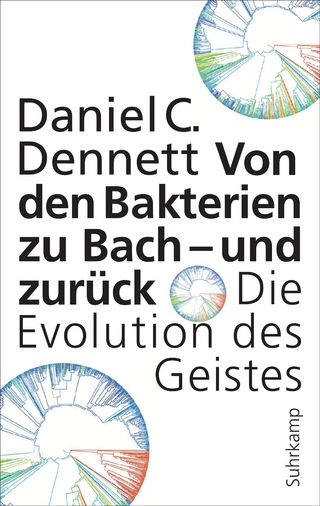
Wittgenstein's Tractatus
Oxford University Press (Verlag)
978-0-19-966578-5 (ISBN)
This volume of newly written chapters on the history and interpretation of Wittgenstein's Tractatus represents a significant step beyond the polemical debate between broad interpretive approaches that has recently characterized the field. Some of the contributors might count their approach as 'new' or 'resolute', while others are more 'traditional', but all are here concerned primarily with understanding in detail the structure of argument that Wittgenstein presents within the Tractatus, rather than with its final self-renunciation, or with the character of the understanding that renunciation might leave behind. The volume makes a strong case that close investigation, both biographical and textual, into the composition of the Tractatus, and into the various influences on it, still has much to yield in revealing the complexity and fertility of Wittgenstein's early thought. Amongst these influences Kant and Kierkegaard are considered alongside Wittgenstein's immediate predecessors in the analytic tradition. The themes explored range across the breadth of Wittgenstein's book, and include his accounts of ethics and aesthetics, as well as issues in metaphysics and the philosophy of mind, and aspects of the logical framework of his account of representation. The contrast of saying and showing, and Wittgenstein's attitude to the inexpressible, is of central importance to many of the contributions. By approaching this concern through the various first-level issues that give rise to it, rather than from entrenched schematic positions, the contributors demonstrate the possibility of a more inclusive, constructive and fruitful mode of engagement with Wittgenstein's text and with each other.
Peter Sullivan is a Professor at the University of Stirling where he has taught since 1993. The primary focus of his published work has been on the founding figures of analytic philosophy: Frege, Russell, the early Wittgenstein, and Ramsey. Michael Potter, University Lecturer in Philosophy, University of Cambridge, and Fellow, Fitzwilliam College, Cambridge . He is the author of Sets (OUP, 1990), Reason's Nearest Kin (OUP, 2000), Set Theory and its Philosophy (OUP, 2004), and Mathematical Knowledge (edited with Mary Leng and Alexander Paseau, OUP, 2007).
1. Introduction ; 2. Wittgenstein's pre-Tractatus manuscripts: a new appraisal ; 3. Why does Wittgenstein say that ethics and aesthetics are one and the same? ; 4. Kierkegaard and the Tractatus ; 5. What is Frege's 'concept horse problem'? ; 6. Tractatus 5.4611: 'Signs for logical operations are punctuation marks' ; 7. Logical segmentation and generality in Wittgenstein's Tractatus ; 8. Does the Tractatus contain a private language argument? ; 9. Logic and solipsism ; 10. Was the author of the Tractatus a transcendental idealist? ; 11. Idealism in Wittgenstein: a further reply to Moore ; Index
| Reihe/Serie | Mind Association Occasional Series |
|---|---|
| Verlagsort | Oxford |
| Sprache | englisch |
| Maße | 162 x 241 mm |
| Gewicht | 580 g |
| Themenwelt | Geisteswissenschaften ► Philosophie ► Erkenntnistheorie / Wissenschaftstheorie |
| Geisteswissenschaften ► Philosophie ► Logik | |
| Geisteswissenschaften ► Philosophie ► Metaphysik / Ontologie | |
| Geisteswissenschaften ► Philosophie ► Philosophie der Neuzeit | |
| ISBN-10 | 0-19-966578-8 / 0199665788 |
| ISBN-13 | 978-0-19-966578-5 / 9780199665785 |
| Zustand | Neuware |
| Informationen gemäß Produktsicherheitsverordnung (GPSR) | |
| Haben Sie eine Frage zum Produkt? |
aus dem Bereich

![Was heißt Denken?. Vorlesung Wintersemester 1951/52. [Was bedeutet das alles?] - Martin Heidegger](/media/113619842)
